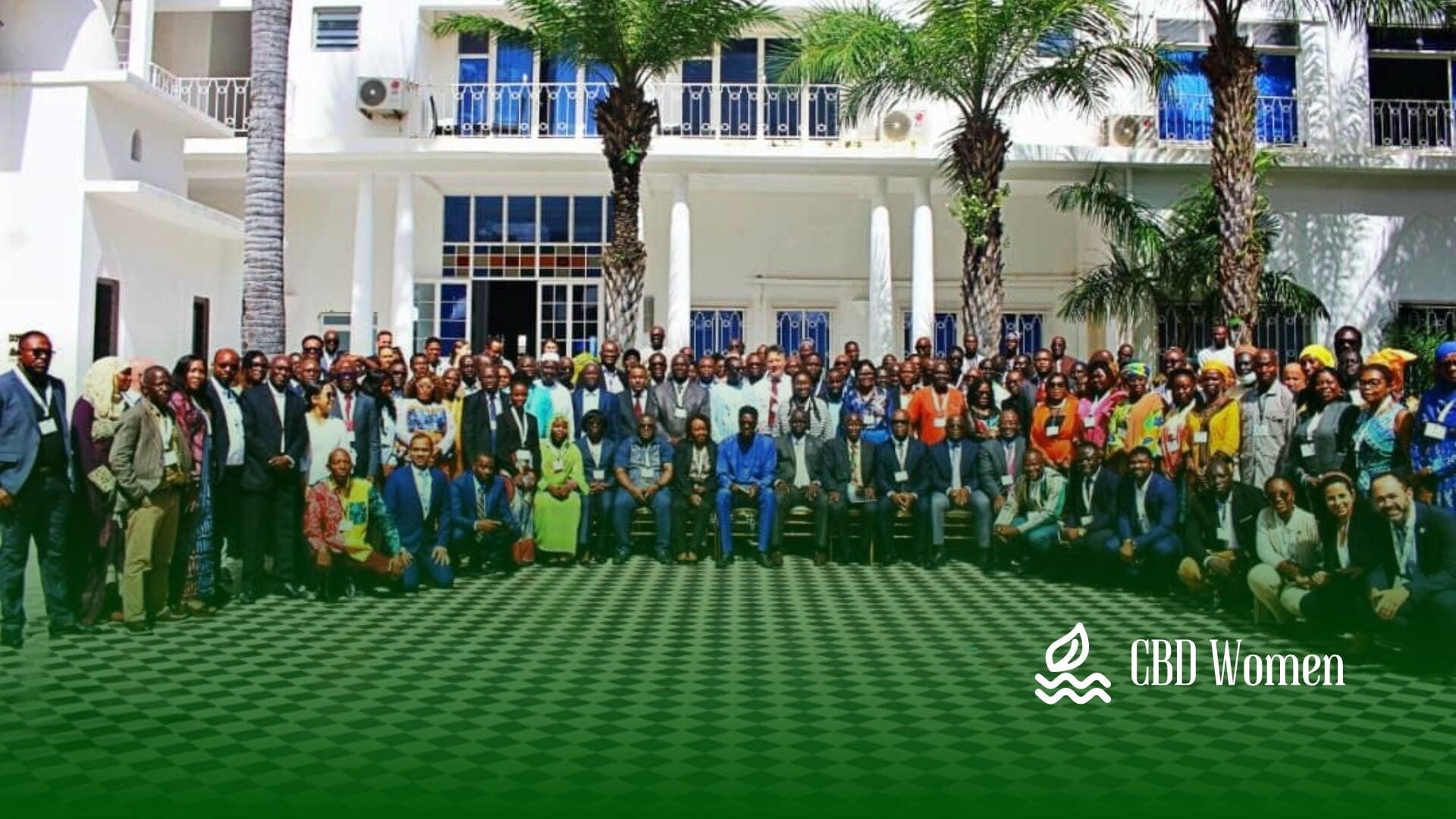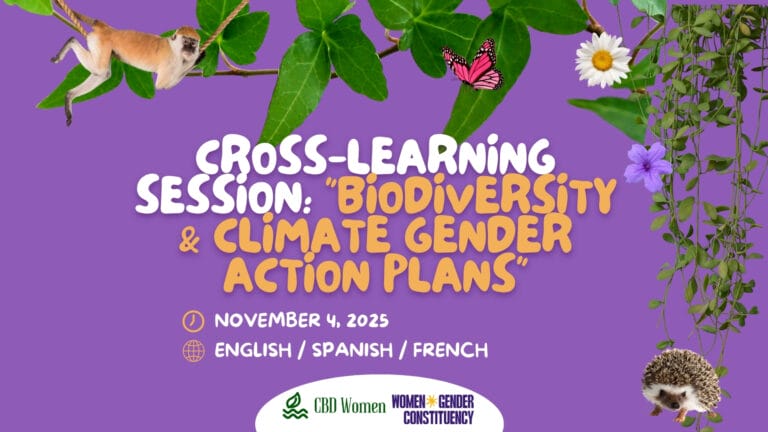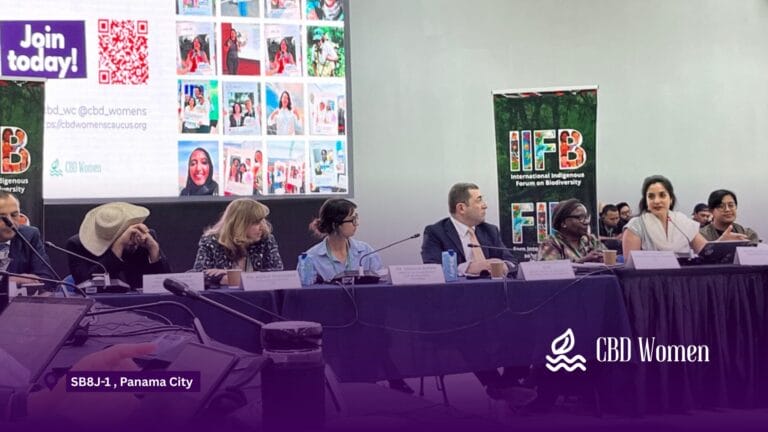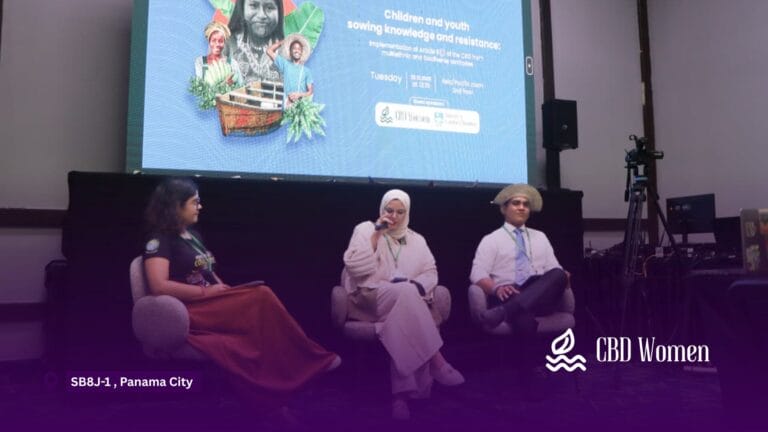By Ms. Helen Siah Hallie, Social Entrepreneurs for Sustainable Development, CBD Women’s Cuacus member
Disclaimer: The views expressed in this blog are those of the author and do not necessarily reflect the official position or opinions of the CBD Women’s Caucus
From 23 to 26 September 2025, the Global Environment Facility (GEF) hosted the Extended Constituency Workshop (ECW) for West Africa in Banjul, The Gambia. The event gathered more than 100 participants, including government representatives, civil society organizations (CSOs), Indigenous Peoples, women’s groups, and other stakeholders from across the region.
The workshop provided a platform to strengthen the CBD Women’s Caucus engagement with national and regional actors and to promote gender-responsive environmental governance. It also aligned closely with the CBD WC’s mission to advance gender justice and women’s leadership in all biodiversity and environmental decision-making processes.
Strengthening Collaboration for Inclusive Governance
The GEF ECW aimed to build the capacity of participating countries to design, implement, and monitor projects aligned with GEF-8 programming priorities. These priorities include biodiversity protection, climate resilience, land degradation neutrality, and sustainable food systems.
The event fostered regional collaboration, knowledge exchange, and stakeholder participation—especially among CSOs, Indigenous Peoples, and women’s organizations—to ensure that GEF resources are used effectively and equitably.
Participants came from across GEF-eligible countries such as Liberia, The Gambia, Sierra Leone, Ghana, Nigeria, Mali, Benin, Burkina Faso, and Côte d’Ivoire, and included government focal points, representatives from the GEF Secretariat, UNDP, the African Development Bank, and women’s groups such as the CBD Women’s Caucus.
Women’s Leadership at the Forefront
Representing the CBD Women’s Caucus, Ms. Helen Siah Hallie participated in the discussions, emphasizing the need for gender-responsive biodiversity governance and strengthening women’s participation in environmental policy spaces. Her engagement helped amplify women’s and girls’ perspectives and ensure that national and regional programming integrates gender justice principles at every stage.
The GEF-8 programming framework recognizes that women play a vital role in natural resource management and that achieving biodiversity goals depends on their full, effective, and meaningful participation and leadership.
Highlights and Key Discussions
The workshop featured a range of interactive sessions, including:
Country Portfolio Development Exercise:
National teams assessed their GEF portfolios, identified gaps, and discussed opportunities for future programming.CSO Engagement and Knowledge Sharing:
Civil society representatives shared grassroots experiences and challenges in accessing GEF funding, highlighting the importance of community-driven initiatives.Cross-Country Learning:
Delegations presented case studies on biodiversity conservation, climate adaptation, and community-led resource management, showcasing how women and local communities drive environmental solutions when adequately supported.
These discussions underscored the need for inclusive governance frameworks that recognize the leadership of women, youth, and Indigenous groups in biodiversity and climate action.
Outcomes and Resolutions
The GEF ECW led to several key outcomes:
Enhanced Understanding of GEF Processes: Participants deepened their knowledge of the GEF project cycle, funding mechanisms, and opportunities for CSO engagement.
National Coordination: Recognition of the need to establish National GEF Steering Committees to promote inclusive decision-making.
Empowering Communities: Renewed commitment to empowering women, youth, and Indigenous Peoples as key agents of environmental change.
Regional Networking: Strengthened partnerships between CSOs, agencies, and countries for collaborative GEF programming.
Bilateral Dialogues: Countries like Liberia used the opportunity to align national biodiversity and climate priorities with GEF-8 strategies.
Major Resolutions:
Strengthen regional cooperation for joint environmental action.
Invest in capacity-building for national and regional stakeholders.
Ensure inclusive participation of Indigenous people, local communities, women and youth and all relevant stakeholders, including local communities and CSOs, in environmental decision-making.
Moving Forward
Following the GEF ECW in The Gambia, the CBD Women’s Caucus will continue to:
Maintain communication with GEF focal points, civil society representatives, and gender advocates to strengthen future collaboration.
Explore joint initiatives promoting women’s leadership in biodiversity and climate governance.
Share workshop outcomes and lessons learned with members and partners through online exchanges.
Translate insights into community-based advocacy and awareness campaigns.
Identify opportunities for gender-responsive projects under GEF-8 priority areas and engage national GEF focal points to align women-led initiatives with national biodiversity strategies.




